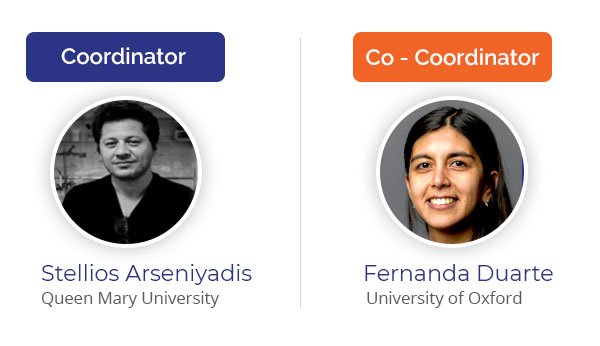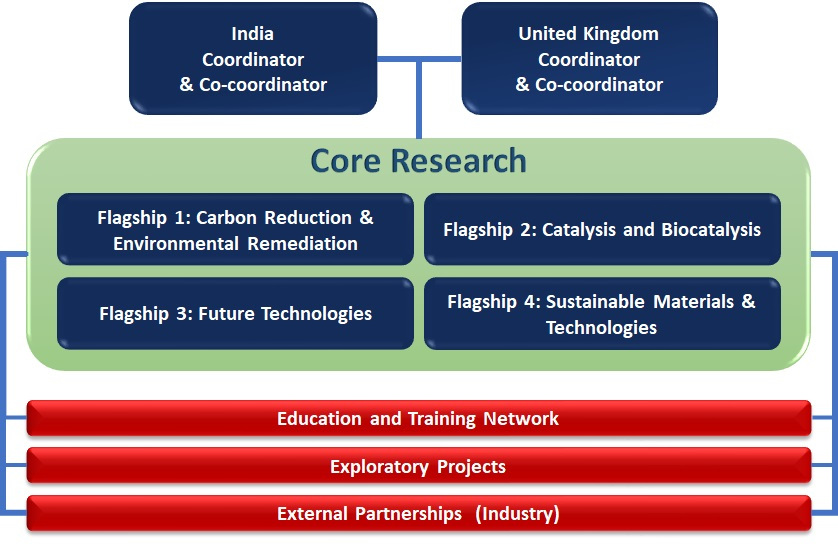Innovation & Sustainability Chemistry Consortium
An international multidisciplinary chemistry network providing a training and research environment for future international chemistry leaders in India and United Kingdom

An international multidisciplinary chemistry network providing a training and research environment for future international chemistry leaders in India and United Kingdom

To develop scientific solutions that address key global sustainability challenges by harnessing the talents and innovation from leading UK and Indian scientists using digital technology to enable collaborative research between the two nations.
The Innovation and Sustainability Chemistry Consortium (ISCC) has been set up to tackle important global sustainability challenges and to disseminate the knowledge gained to wider audiences.
The key aims of the consortium are:
Sustainability is an increasingly important parameter for a nation to balance economic growth against the need to mitigate the effects of global warming. Most scientifically developed nations are therefore seeking to transition their manufacturing and industry to sustainable practices as a basis for curtailing carbon emissions. Development of sustainable technologies as well as the improvement of existing technologies to meet these needs are now being set as important goals by scientific organisations and funding agencies.
ISCC is a network of scientific leaders - that with their combined talents and expertise are poised to work together on exciting new scientific challenges. The experts have been selected from 13 internationally reputed institutions from India and UK
India: Institute of Chemical Technology Mumbai, Indian Institute of Technology Bombay, Indian Institute of Science Education and Research Pune, Indian Institute of Science Education and Research Thiruvananthapuram, The Centre for Nano and Soft Matter Sciences, Bengaluru, Tata Institute of Fundamental Research, Mumbai, Indian Institute of Technology Kanpur
United Kingdom: Queen Mary University of London, University of Oxford, Greenwich University, University College London, University of St. Andrews, University of Manchester
ISCC has been created to promote sustainable chemical developments by facilitating greater interactions between academic and industrial partners. It will strive to create a conducive environment for the proliferation of such partnerships and will be involved in the education and training of individuals in academia as well as industry on the topic of sustainability. The consortium intends to undertake many innovative programs in research and education by making use of futuristic technologies such as virtual reality (VR), machine learning, and alternative technologies. Accordingly, the consortium wants to achieve the following objectives:


